
Hundreds of success books have been filed on most professionals’ shelves. While they all made sense to a certain degree, only a few will fill in the gaps of what every self-help book is missing. For some of us, books have been our refuge from this tough year—or decade!
Regardless of the challenges life brings us, we should utilize every setback to further us to our specific season. This time, re-navigate your path to victory by including the scientific rationale and butterfly effect of attitude into the formula. In this article, we’ve listed the best books for success that use scientific principles and behavioral science to gear you for 2021.
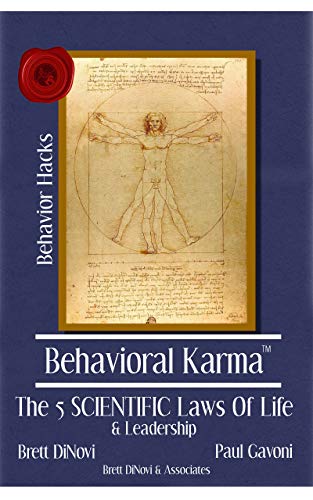
Behavioral Karma: 5 Scientific Laws of Life & Leadership, by Brett Dinovi and Paul Gavo
Every bend and hurdle you’ve encountered your whole life has molded your behavior, and the kind of attitude you have right now will determine your future. The journey of success begins with acknowledging your personal story. Authors Brett DiNovi and Dr. Paul Gavoni teach Behavioral Karma that is a data-based science of behavior backed with multiple peer-reviewed journals while relating from their own experiences.
The concept of Behavioral Bank talks about how we are fragments of every person that we meet and how every interaction—good or bad—has a significant effect on our relationship with them. Whether you’re a leader or just a person wanting to be better, this book reshapes your understanding of success with five important laws and behavior hacks to help you become an effective person.
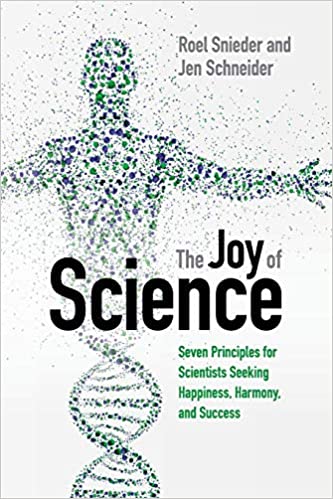
The Joy of Science (Seven Principles for Scientists Seeking Happiness, Harmony, and Success), by Roel Snieder and Jen Schneider
This book resonates with people in the academe who are always faced with pressure and dysfunctional situations to deliver and contribute novel results in the name of science. If you fit in the category, this book will not help you write a profound thesis or research article. Instead of forthrightly discussing the qualities to produce good output, Snieder and Schneider appeal to postgraduate students, professors, and scientists by giving realistic settings in the academe, one’s behavior towards it, and how to deal with them.
A student surrounded by a pack of geniuses, a lone researcher working with award-winner scientists, and professors with colleagues who bag multiple research funding—these scenarios implicate demoralized egos that can question one’s belongingness in the field. The Joy of Science aims to rekindle the passion of those who are lost in translation with the seven habits for a balanced and successful life.
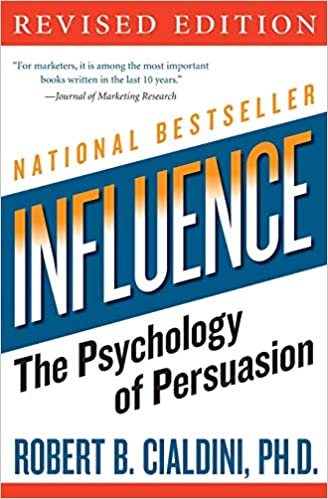
Influence: The Psychology of Persuasion, by Robert B. Cialdini
Have you ever been stopped from what you were doing only to be convinced by a salesperson with the products they are selling? Influence is a wonderful book that focuses on 6 fundamental principles to guide you in becoming a skilled persuader—Reciprocation, Commitment and Consistency, Social Proof, Liking, Authority, and Scarcity. Dr. Robert Cialdini tackles the psychology behind influence with his 35 years of research experience and his 3-year program study to understand behaviour changes.
Cialdini wrote this book for people who are having difficulties in saying ‘No’, helping them distinguish sincere encounters from manipulation. His study laid out the strategies to overcome mental shortcuts we adapt as an automatic response which are typically exploited by most big companies for their financial interest.
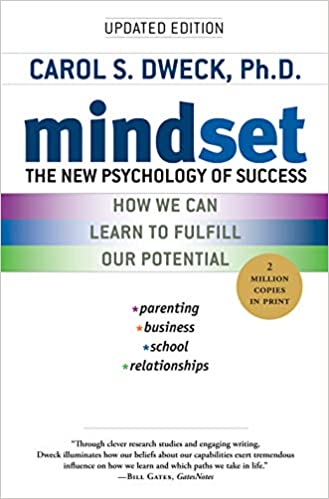
Mindset: The New Psychology of Success, by Carol S. Dweck
In this stellar book, Stanford University researcher and psychologist Carol Dweck details her observation studies on children met with various challenges, how they deal with it, and what we can learn from them. The premise is that you either cope with failure or not cope at all, but her study interestingly shows how resilience is not limited to acceptance of defeat and moving forward, as it also branches to the courage to face the same adversary once again. The ‘Fixed Mindset’ and the ‘Growth Mindset’ are two polarizing models where most people fit the former category while those in the latter are revealed to succeed later in life.
As Dweck claims that the way you perceive yourself strongly affects how you live your life, her work implies that being oblivious to the shame that comes with failing should be embraced.
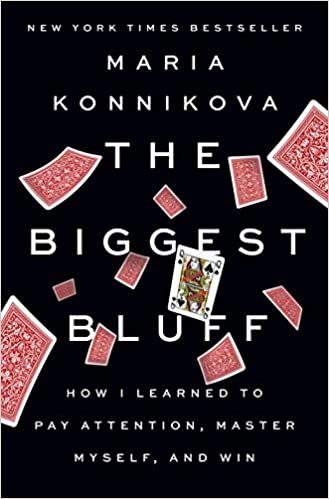
The Biggest Bluff: How I Learned to Pay Attention, Master Myself, and Win, by Maria Konnikova
The psychologist turned international poker champ Maria Konnikova details in this book her thrilling yet hilarious journey and life lessons she learned from her first poker game. The Biggest Bluff will not teach you about poker, but instead shows you how factors like emotions affect your way to good decisions. When she scouted Poker Hall of Fame Erik Seidel, Konnikova made it clear that her purpose in the world she’s about to enter is not about becoming a millionaire but instead a digging of valuable lessons that can mold her entire being.
Konnikova’s reflection on the role of chance prompted her not only to analyze her opponents but also to re-assessing her behavior. From her personal experience, she argues that skill is not always enough as drawing bad cards is inevitable. So, it’s only a matter of keeping our head in the game to deal with it.
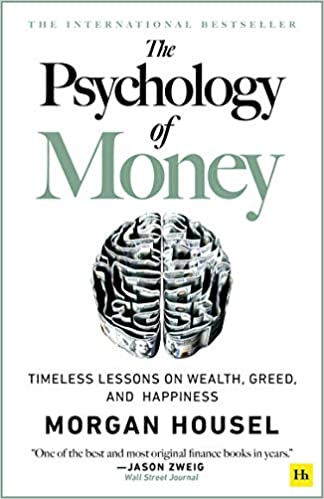
The Psychology of Money: Timeless Lessons on Wealth, Greed, and Happiness, by Morgan Housel
When it comes to money, you don’t have to be a genius to become rich. In this book, Author Morgan Housel tells us that behavior is key to wealth, but it is also the hardest thing to teach people, even intelligent ones. Housel wrote strategies that can cater to all ages, from 20-something money-ignorant to realizing valuable lessons during years of accumulation for those successful 50 and above.
While investments, finance, and business strategies offer incentives to those who are literate in the field of math, the reality will tell you that it’s more than just technical analytics involving graphs and charts. The Psychology of Money not only teaches us the ways to become rich but also to be wiser.
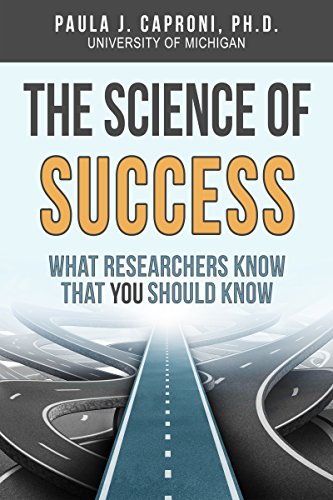
The Science of Success: What Researchers Know that You Should, by Paula Caproni
Researchers have dedicated decades of analyzing and studying what happy and successful people do differently from those who are struggling daily. You might have questioned why some people excel at their early stages while others appear like a late bloomer, or why do people go to the lengths of overworking themselves only to end up not getting the promotion they deserve? Are there valuable shortcuts young people can take based on the cumulative experiences of those financially successful, or how do success stories of people who bounced back from failure happened?
In this book, Caproni answers them with science-based strategies aimed to guide you towards personal and professional success while debunking the myths that can hold you back. Expect to learn the four powers to success based on expertise, self-motivation, mutual relationship, and self-belief.
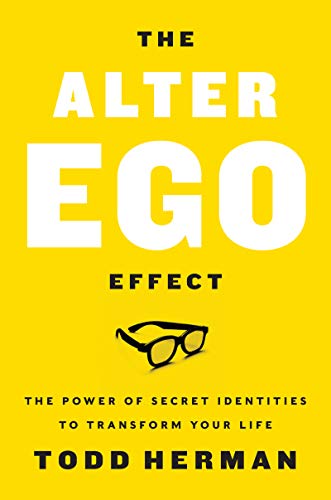
The Alter Ego Effect, by Todd Herman
Channel your inner superhero with this book that provides historical and scientific evidence to transform your habit. Todd Herman’s 21 years of experience working with elite leaders, public figures, and athletes allowed him to come up with a flexible methodology that suits a wide range of audiences from aspiring athletes to successful entrepreneurs who are looking to fill in the gaps they’re missing in. When Todd met Bo Jackson, a professional athlete, the idea of alter ego dawned on him when Jackson shared that he manifested the cold and calculative Jason Voorhees to cope with his anger issues.
There’s no magical way to the pot of gold. So whether you’re trying to overcome a problem or achieve a goal, each highly relatable story compiled in this book will unleash your full potential while getting rid of that one person that’s hindering you from success: you.
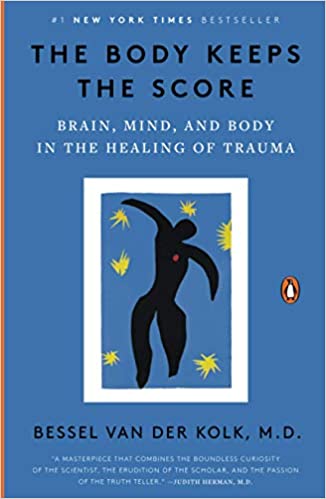
The Body Keeps the Score: Brain, Mind, and Body in the Healing of Trauma, by Bessel van der Kolk
Medical director Bessel van der Kolk, one of the renowned experts on the psychology of trauma, offers a daring new way of healing old wounds with his book. Focusing on the painful experiences of war veterans, children abused and molested by their own family, and a person trapped in a violent relationship, van der Kolk tells the sad journey of trauma sufferers and how he helped to transform their lives. With several medical pieces of evidence, he reveals how the brain rearranges itself to cope up with the terrible pain in the past.
When left unpatched, trauma sufferers can lead to destructive tendencies as their past still controls their life. The Body Keeps the Score teaches us useful techniques to reactivate pleasure, trust, and social participation as an alternative to therapy and drugs.
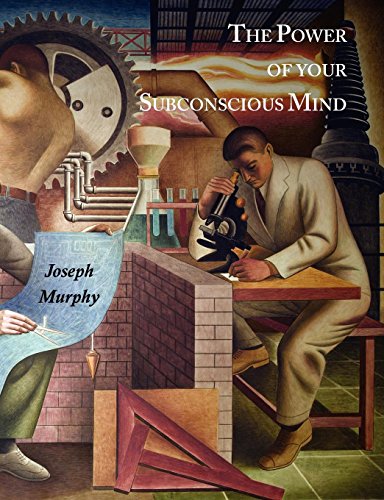
The Power of Your Subconscious Mind, by Joseph Murphy and Mark White
This brilliant book fuses spiritual wisdom with data-backed scientific research to allow you to heal yourself, repair your watered-down relationships, eliminate your anxiety and fear of failure, and find happiness in the general sense. Authors Murphy and White show the science of how the subconscious mind affects about 90-95% of our reaction to our environment, and our everyday decisions. The combination of skill set, behavior, and effort contribute 80% to the success stories of people who have achieved their goals.
This book aims to help readers understand their subconscious mind to a deeper level to control their fears and improve their well-being. The simple message Murphy and White want to get across is that if you want something, embed it to your subconscious, and the opportunities you meet are your stepping-stones.
The commonality of books in this list tells how one’s past affects the present by embedding a behavior that could also determine the trajectory of their future. Expect a harmonious 2021 after reading one of these best books for success that use scientific principles and behavioral science. The right book on your hands will let you rethink your leadership and personal lifestyles, showing you the impact of ripple effects on your psychological well-being.
